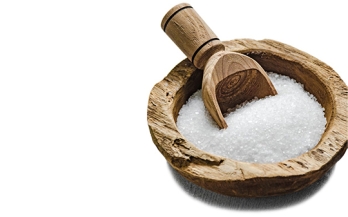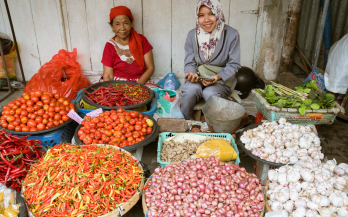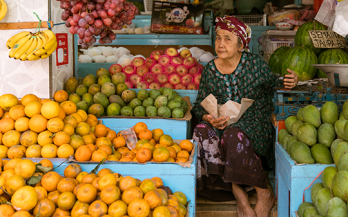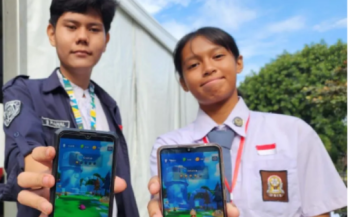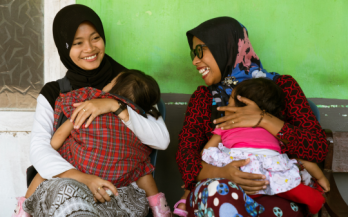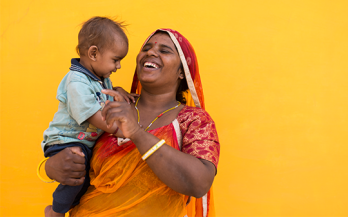- 03/06/2025
The world is facing multiple interconnected crises, including climate change and escalating conflicts, which pose significant challenges to food systems. These issues highlight the need for systemic transformation to improve food security, nutrition, and environmental sustainability. In response, GAIN's Nourishing Food Pathways (NFP) programme aims to strengthen and support the implementation of food system pathways in 11 countries.
One focus of NFP is exploring the intersection between food and environment, including climate change, to identify consumer actions that promote both nutrition and environmental sustainability in low- and middle-income countries (LMICs). Specifically, GAIN is interested in understanding if our Emotivate™ approach, which leverages emotions to motivate consumers to want better diets, can be extended to include emotions or values associated with environmental sustainability. Our initial hypothesis was that consumers felt emotional tensions related to environmental sustainability as a driver of food choices, which could be leveraged to develop an emotionally resonant campaign.
- 16/05/2025
WHA Global Nutrition Stunting Target 2012-2025
Achieve a 40% reduction in the number of children under-5 who are stunted
WHA Global Nutrition Overweight Target 2012-2025
Ensure that there is no increase in childhood overweight
A recent high-level event co-hosted by the Center for Indonesian Policy Studies (CIPS) and the Global Alliance for Improved Nutrition (GAIN) brought together key stakeholders at Oakwood Suites Kuningan in Jakarta on December 10, 2024. This strategic discussion, which fostered collaboration among government, academia, and industry experts, aimed to contribute to addressing Indonesia's pressing food security and nutrition challenges.
- 28/10/2024
Indonesia is confronting a pressing public health challenge that extends beyond diet: the impact of non- communicable diseases (NCDs) driven by lifestyle factors, including high sodium intake. This issue
is particularly concerning as many NCDs, such
as hypertension and cardiovascular disease, are preventable yet contribute significantly to the country’s morbidity and mortality rates. For instance, Indonesia’s stroke burden remains substantial, with a Disability- Adjusted Life Years (DALYs) rate of 3,809 per 100,000 people in 2021,1 one of the highest in Southeast Asia, reflecting the urgent need for targeted public health interventions.
- 27/08/2024
This brief explains some key findings and recommendations from a recent roadmap report on FLW reduction produced by the Ministry of National Development Planning (BAPPENAS), with key partnerships from the Global Alliance for Improved Nutrition (GAIN). It highlights the crucial role of coordinated efforts in achieving the desired reduction in FLW and thereby mitigating its environmental and economic impacts.
GAIN Indonesia was at the forefront of Green Economy Expo held by The National Development Planning Agency (BAPPENAS) on July 3-5 in Jakarta. This year’s theme was “Advancing Technology, Innovation, and Circularity”. The event brought to the forefront discussions on sustainable development and the implementation of circular economy principles throughout Indonesia.
In a world where digital footprints deeply influence consumer behaviour, the integrity of online reviews is paramount. Recognising the challenges and opportunities presented by user-generated content (UGC), the Center for Indonesian Policy Studies (CIPS), supported by the Global Alliance for Improved Nutrition (GAIN), hosted a webinar in February 2024 focused on the implications of UGC for consumer protection in Indonesia. Complementing this discussion, a detailed policy paper, "Understanding the Landscape of Online Reviews in Indonesia from the Perspectives of Platforms and Consumers", has been launched to provide comprehensive analysis and actionable recommendations.
- 31/05/2024
Micronutrient malnutrition remains a significant challenge in Indonesia, particularly among impoverished populations who struggle to afford and access nutrient-rich foods. Iron deficiency anemia is especially concerning, affecting 48.9% of pregnant women and 38.5% of children across the country. To address these gaps, the Ministry of Health, in collaboration with the Global Alliance for Improved Nutrition (GAIN), conducted a comprehensive Micronutrient Gap Assessment (MGA). This assessment aimed to evaluate micronutrient intake levels among Indonesians and identify the potential benefits of rice fortification in meeting recommended dietary requirements.
- 22/04/2024
As countries develop their National Pathways for food systems transformation, one emerging need is to
ensure policies land at different levels. A truly effective ‘national’ policy must span all sub-national areas.



